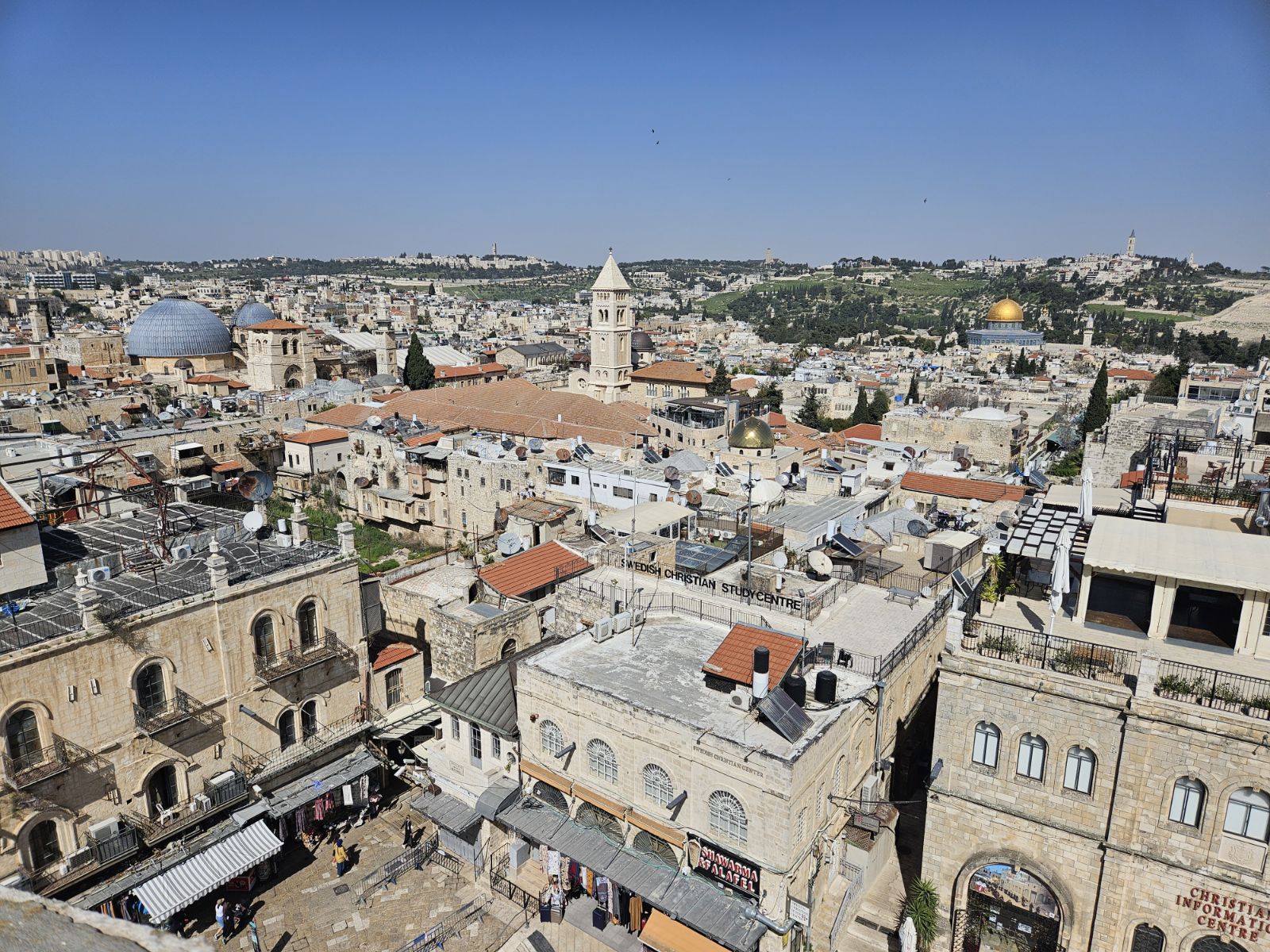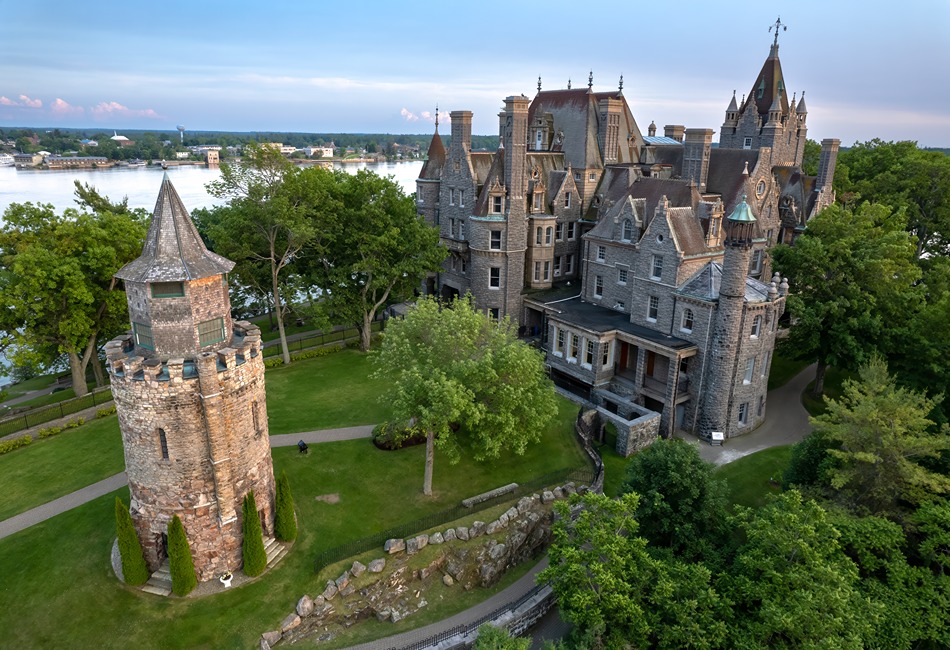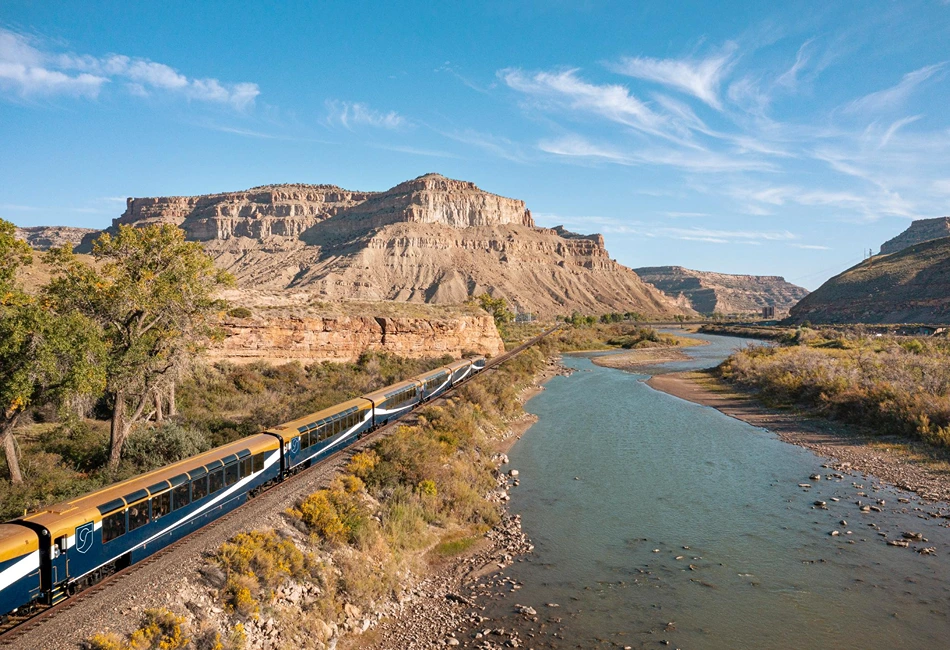Life goes on despite ongoing clashes that have the Middle East, and the world, on edge
By Jason Paha
As I prepared to embark on my recent journey to Israel, a friend offered a stern warning: “Be careful. Israel is the most dangerous place on earth right now.”
He couldn’t be more wrong.
Certainly, Israel’s geopolitical conflicts are well documented as the war in Gaza has claimed thousands of lives, the clash with Hezbollah forced many to leave their homes and the back-and-forth between Israel and Iran has the Middle East on edge.
What many don’t realize though is these battles are mostly unfolding in pockets far from Israel’s major tourism destinations. Echoing my friend’s erroneous admonition, Israel’s wars have deterred visitors to the point its tourism industry has been decimated.
The Central Bureau of Statistics reports Israel had 79,500 tourist entries in March, a considerable drop from the 375,600 tourist entries in March of 2023. Between January and March of this year, 206,700 visitors entered the country compared with 966,200 in the corresponding period of 2023. Judging by the United States’ most recent travel advisory, which lists Israel in the “reconsider travel” category, those numbers probably won’t grow anytime soon.
“There is unfortunately no tourism (currently),” said tour leader Mika Rabinovich. “Many travel agents are booking for 2025. The situation is bad even though it’s really nice and quiet and there is nothing (relating to the war) in those big towns and along the Sea of Galilee.”
Far be it from me to quibble with the U.S. government, but when it comes to safety, Tel Aviv and Jerusalem are hardly Gaza. During an eight-day period in April, my group visited Israel’s most noteworthy tourism destinations and I felt as safe as I did at a Louisville Waffle House.
“People keep going with their lives and while it’s very sad and there’s a lot of tension, life goes on,” Rabinovich said.
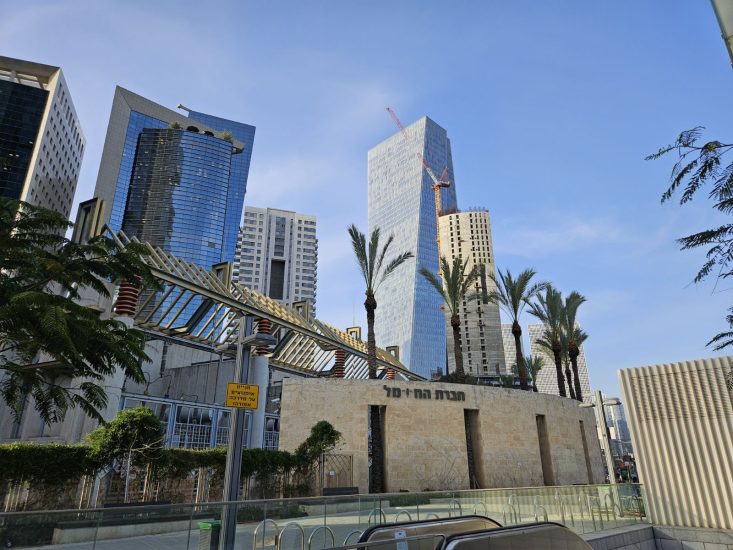
Tel Aviv, which dates to 1909, is a cosmopolitan destination that captures the essence of modern Israel.
Tel Aviv
Life does go on. Even with sobering remembrances across Tel Aviv of the hostages captured by the Palestinian military group Hamas during the October 7, 2023 attacks that killed 1,200 while abducting 252, mostly civilians. Posters strewn across the city of each Israeli hostage accompanied by the phrase “Bring Them Home Now” in bold lettering offer a stark reminder of the terror that accompanied that day and continues onward.
In Hostages Square, a public plaza in front of the Tel Aviv Museum of Art, families of the hostages taken during the attack have encamped in the square. It has also been the site of rallies and protests during the Israel-Hamas war calling for the release of those taken captive.
Amid the pain and anger coursing through Tel Aviv, the city and its residents attempt to move forward. Tel Aviv, which only dates to 1909, is a cosmopolitan destination that captures the essence of modern Israel. It is a lively metropolis with a diverse population and pulsates with vibrancy, entertainment, fashion and cuisine.
No less an authority than the New York Times bestowed Tel Aviv with the monicker “Mediterranean Capital of Cool,” and one can see why. Renowned as a city that never sleeps, Tel Aviv’s heartbeat echoes through sandy Mediterranean shores which meld seamlessly with a thriving cultural milieu featuring energetic bars and restaurants brimming with youth.
Those interested in historical sightseeing can explore Old Jaffa, the ancient seaport that existed long before there was a Tel Aviv. The cobbled streets of Jaffa’s old quarter flourish with art galleries, shops and restaurants. The nearby Jaffa Flea Market bustles with activity and is reminiscent of a traditional Middle Eastern bazaar.
Other Tel Aviv hot spots include its palm-lined beaches and the lively Carmel Market, where vendors peddle fresh produce, souvenirs, clothing and delectable street food.
Caesarea National Park
A short drive north of Tel Aviv is Caesarea National Park, a onetime port city that today stands as a testament to Israel’s history. Traditionally, Caesarea is overrun with tour buses as it is Israel’s most popular tourist destination. But on the day our press group visited, Caesarea better resembled a ghost town than the thriving port city it once was.
Regardless, Caesarea is a fascinating site, a national park where ancient harbor ruins, pristine beaches and modern residences peacefully coexist. Established more than two millennia ago, this ancient city was constructed during the reign of Herod the Great around 1 BCE. The city was fortified by the Romans, early Christians, Muslims and then again by Christian Crusaders. The ruins include a theater, a Roman aqueduct and the Herodian hippodrome.
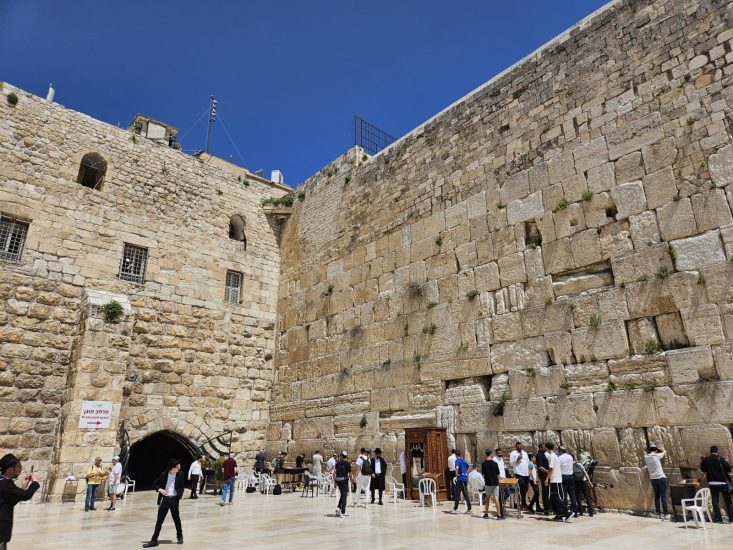
The Western Wall, also known as the Wailing Wall, is considered by many Judaism’s most sacred structure.
Jerusalem
A city sacred to the world’s three great monotheistic religions, Judaism, Christianity and Islam, Jerusalem is an extraordinary experience.
The Old City of Jerusalem is steeped in history, featuring four distinct quarters – Jewish, Christian, Muslim and Armenian – and is a place of pilgrimage for millions each year. Even with the typically hectic streets feeling more muted than usual, virtually every corner resonates with profundity as religion and history intertwine in ways few destinations can match.
The capital of Israel, and perhaps the holiest place on earth, the Old City is packed with religious and historical sites including the Via Dolorosa, which represents the path Jesus took on the way to his crucifixion; the Dome of the Rock, built in the late 7th century CE, it is the oldest extant Islamic monument; and the Tower of David Museum, one of Israel’s prominent cultural institutions and Jerusalem’s official museum.
Perhaps the most remarkable destination in Old Jerusalem is the Church of the Holy Sepulchre, built on the spot where Orthodox and Catholic Christians believe Jesus was crucified, buried and resurrected. Many consider the church the holiest location for Christians in the world and it has been an important pilgrimage site for Christians since the fourth century.
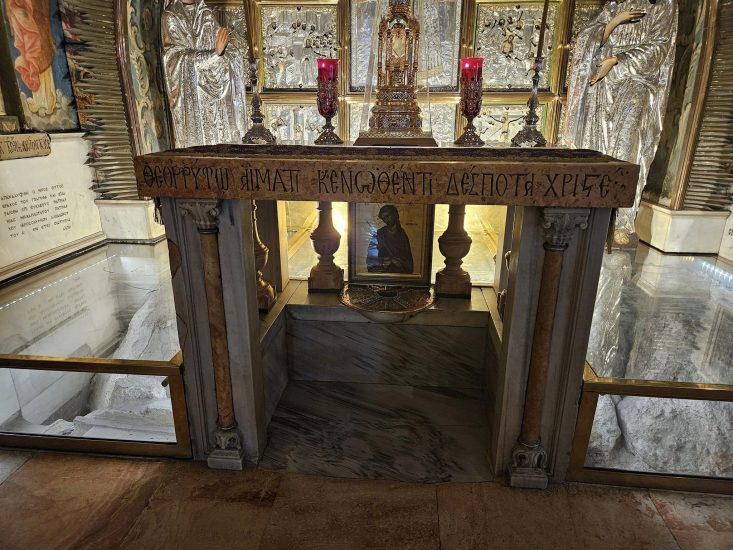
The Church of the Holy Sepulchre is built on the spot where Orthodox and Catholic Christians believe Jesus was crucified, buried and resurrected.
Less than a 10-minute walk from the church is the Western Wall, also known as the Wailing Wall, thought by many Judaism’s most sacred structure. It is the only remains of the retaining wall surrounding the Temple Mount, the site of the First and Second Temples of Jerusalem, which were deemed uniquely holy by the ancient Jews. Thousands practicing a variety of faiths journey to the wall every year to recite prayers. Traditionally, these prayers are either spoken or written and placed in cracks of the wall.
Regardless of whether you are a practitioner of faith, Jerusalem’s blend of history, culture and spirituality make it a singular, unforgettable destination.
Modern Jerusalem
West Jerusalem, which colloquially is called modern Jerusalem, is home to a variety of attractions including Machane Yehuda Market, a bustling marketplace filled with produce stalls, bakeries and restaurants. The city also features a host of world-class museums and noteworthy stops including Yad Vashem, Israel’s Holocaust Memorial, the Israel Museum and the Knesset (Israeli parliament building). This part of Jerusalem has also been transformed with a fashionable selection of restaurants and bars and its vitality often surprises.
Just down the hill from Machane Yehuda is a relative newcomer and already a best-in-class favorite, Thinkers Distillery, which has been described as a honey pot for connoisseurs thanks to its avant-garde approach to producing gin, vodka and bourbon.
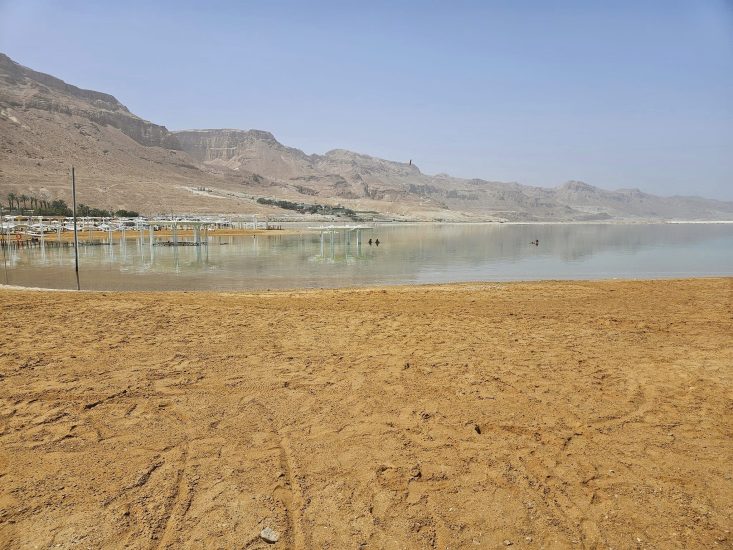
Surrounded by the stunning landscape of the Negev Desert, few places on the planet can rival the Dead Sea for tranquility.
Dead Sea
Situated 1,300 feet below sea level and about an hour from Jerusalem, the Dead Sea is the lowest point on earth.
It has also been branded the world’s most ancient spa, as it is one of the saltiest bodies of water in the world, with 34% salinity, nearly nine times saltier than ocean water. That salt makes the Dead Sea an unparalleled experience as visitors effortlessly float on the buoyant water, with sinking a near-impossible task.
Surrounded by the stunning landscape of the Negev Desert, few places on the planet can rival the Dead Sea for tranquility. Often, groups will spend a day or two in a beachfront hotel fronting this mineral-laden lake whose briny water is said to provide relief for sufferers of any number of ailments.
At the lake’s northwest corner are the ruins of Qumran, an archaeological site where Bedouin shepherds in 1947 discovered parchment fragments that later became known as the Dead Sea Scrolls.
Perched on a plateau overlooking the northwestern shore of the Dead Sea, Qumran is an archeological site dating back to the Iron Age. During its heyday the community was home to about 200 people, and included homes, a fortress, a cemetery and most famously, a series of caves in which scriptures were stored.
Israel is ‘open and safe’
Residing between the cerulean waves of the Mediterranean Sea and the rugged terrain of the Negev Desert, Israel is home to a host of breathtaking vistas and timeless wonders. With its rich tapestry of culture, history and natural splendor, Israel stands as a testament to the enduring allure of the human spirit and the timeless power of the land itself.
“Israel is an incredible destination and right now, some of Israel’s most beloved and important sites, icons like Caesarea and the Church of the Holy Sepulchre have hardly a tourist around,” said Ellen Shapiro, director of public relations, North America, Israel Ministry of Tourism. “While there have been a notable number of tourists who have come to Israel to volunteer and show support, there aren’t many coming strictly to sightsee. At a time like this, it is, of course, understandable that visitors would be reluctant to travel, but as you saw and felt, the sites are open and safe. For everyone, I hope and pray that this war will end soon, and whenever people decide to visit, Israel is ready.”
“We invite people to come visit Israel,” said Pini Shani, deputy director general, Israel Ministry of Tourism. “We wouldn’t take the risk (of inviting tourists) if we didn’t feel they would be safe. The country is open and safe and hopefully soon (the war) will be over. When things calm down people will come.”
For more international stories, subscribe to Leisure Group Travel for FREE.
All photos by Jason Paha


